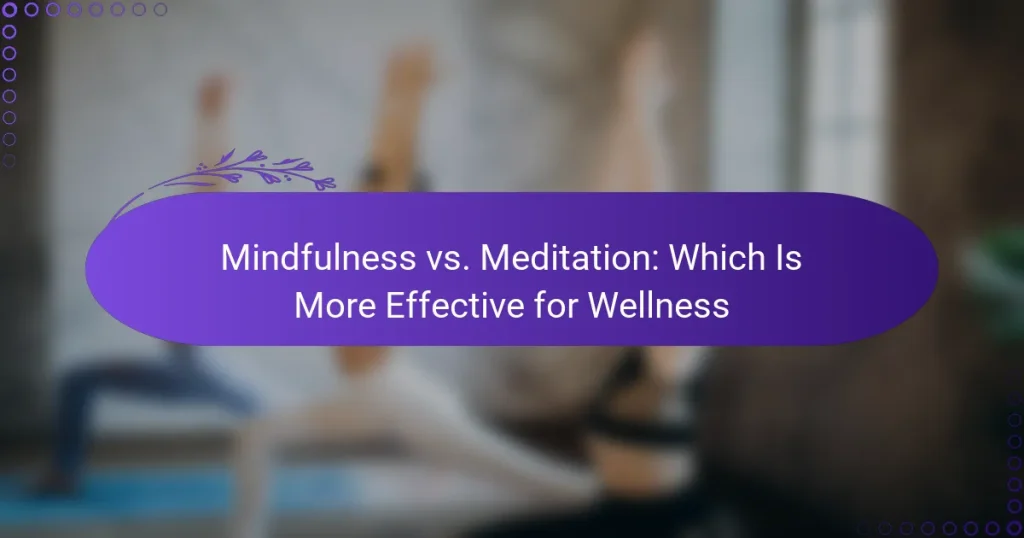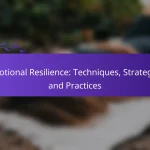Mindfulness and meditation are two powerful practices that enhance overall wellness, each with its unique approach and benefits. While mindfulness emphasizes being present and aware in everyday life, meditation provides a structured method for achieving mental clarity and relaxation. Understanding the differences and effectiveness of each can help individuals choose the best path for their personal wellness journey.
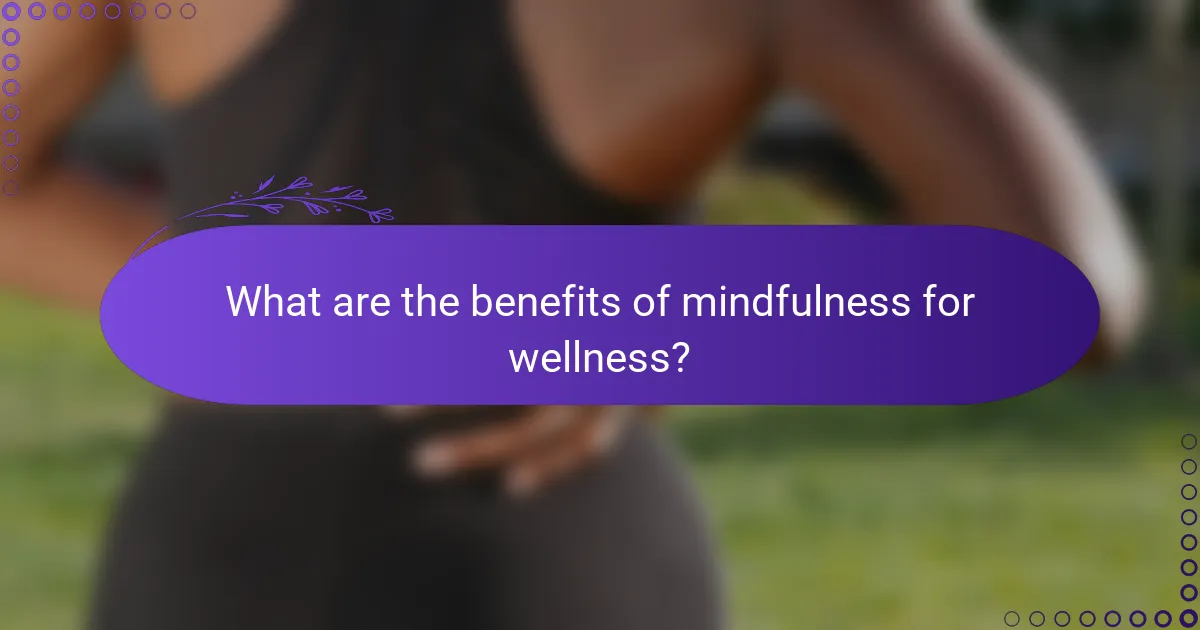
What are the benefits of mindfulness for wellness?
Mindfulness offers various benefits for wellness, primarily by enhancing awareness and presence in daily life. Practicing mindfulness can lead to improved mental clarity, emotional stability, and overall well-being.
Reduces stress and anxiety
Mindfulness helps reduce stress and anxiety by encouraging individuals to focus on the present moment rather than worrying about the past or future. Techniques such as mindful breathing and body scans can lower cortisol levels, which are often elevated during stressful situations.
Regular practice can lead to a significant decrease in anxiety symptoms, making it easier to manage daily stressors. Engaging in mindfulness for just a few minutes each day can provide relief and promote a sense of calm.
Improves emotional regulation
Mindfulness enhances emotional regulation by fostering greater awareness of emotions as they arise. This awareness allows individuals to respond to feelings rather than react impulsively, leading to healthier interactions and decision-making.
Practicing mindfulness can help identify triggers and patterns in emotional responses, enabling better coping strategies. Techniques such as journaling and reflection can further support emotional growth and stability.
Enhances focus and concentration
Mindfulness training can significantly enhance focus and concentration by training the mind to maintain attention on specific tasks. This practice reduces distractions and improves cognitive flexibility, which is essential for productivity.
Simple exercises, like mindful observation or focused attention on a single task, can sharpen concentration over time. Many people find that dedicating even short periods to mindfulness can lead to noticeable improvements in their ability to concentrate.
Promotes overall mental health
Mindfulness contributes to overall mental health by fostering a positive mindset and reducing symptoms of depression and anxiety. Regular practice encourages self-compassion and acceptance, which are vital for emotional resilience.
Incorporating mindfulness into daily routines can lead to a more balanced life, promoting better relationships and a greater sense of fulfillment. Activities such as mindful walking or meditation can be easily integrated into busy schedules, enhancing mental well-being.
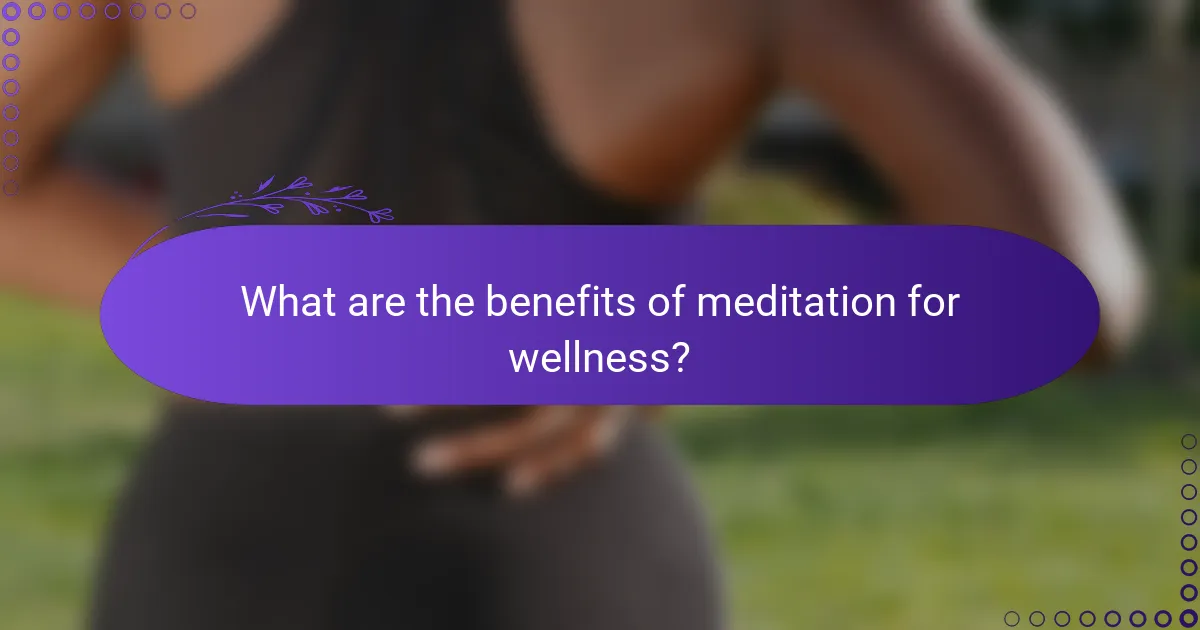
What are the benefits of meditation for wellness?
Meditation offers numerous benefits for wellness, including enhanced emotional health, reduced stress, and improved focus. Regular practice can lead to significant changes in mental and physical well-being over time.
Increases self-awareness
Meditation fosters greater self-awareness by encouraging individuals to observe their thoughts and feelings without judgment. This practice can help identify negative patterns and promote a deeper understanding of oneself.
By regularly engaging in meditation, individuals can develop a more mindful approach to their daily lives, leading to better decision-making and emotional regulation.
Improves sleep quality
Practicing meditation can significantly enhance sleep quality by promoting relaxation and reducing anxiety. Techniques such as mindfulness meditation can help calm the mind, making it easier to fall asleep and stay asleep throughout the night.
Incorporating meditation into a nightly routine may lead to longer sleep duration and improved overall restfulness, which is crucial for physical and mental health.
Boosts immune system
Regular meditation has been linked to a stronger immune system, as it can reduce stress levels that negatively impact immune function. By lowering stress hormones, meditation may help the body respond better to infections and illnesses.
Practicing meditation for even a few minutes each day can contribute to better health outcomes, particularly during cold and flu seasons.
Enhances cognitive function
Meditation can improve cognitive function by enhancing focus, attention, and memory. Studies suggest that regular practice may lead to structural changes in the brain that support these cognitive benefits.
Engaging in meditation exercises, such as concentration or mindfulness techniques, can sharpen mental clarity and boost overall cognitive performance, making it easier to tackle complex tasks.

How do mindfulness and meditation differ?
Mindfulness and meditation are related but distinct practices that contribute to wellness. Mindfulness focuses on being present in the moment, while meditation typically involves a structured approach to achieve mental clarity and relaxation.
Mindfulness is present-focused
Mindfulness emphasizes awareness of the current moment, encouraging individuals to observe their thoughts, feelings, and surroundings without judgment. This practice can enhance emotional regulation and reduce stress by fostering a greater connection to the present.
For example, during daily activities like eating or walking, one can practice mindfulness by paying close attention to sensations, tastes, and sounds, which helps ground the mind and reduce distractions.
Meditation involves structured practice
Meditation is a more formalized practice that often includes specific techniques such as focusing on the breath, repeating a mantra, or visualizing calming imagery. These methods are designed to cultivate deeper states of relaxation and concentration.
Common forms of meditation include mindfulness meditation, transcendental meditation, and loving-kindness meditation, each with unique approaches and benefits. Practitioners typically set aside dedicated time to engage in these structured sessions.
Mindfulness can be practiced anytime
One of the advantages of mindfulness is its flexibility; it can be practiced at any moment throughout the day. Whether during a meeting, while commuting, or even while washing dishes, individuals can integrate mindfulness into their routines.
This accessibility makes it easier for people to incorporate mindfulness into their lifestyles, allowing for consistent practice without needing special equipment or a specific environment.
Meditation often requires dedicated time
Unlike mindfulness, meditation generally requires a specific time commitment to be effective. Sessions can range from a few minutes to an hour, depending on the technique and personal preference. Setting aside this time can be challenging for those with busy schedules.
To make meditation more manageable, consider starting with short sessions of 5-10 minutes and gradually increasing the duration as comfort with the practice grows. Establishing a routine can help ensure consistency and maximize benefits.
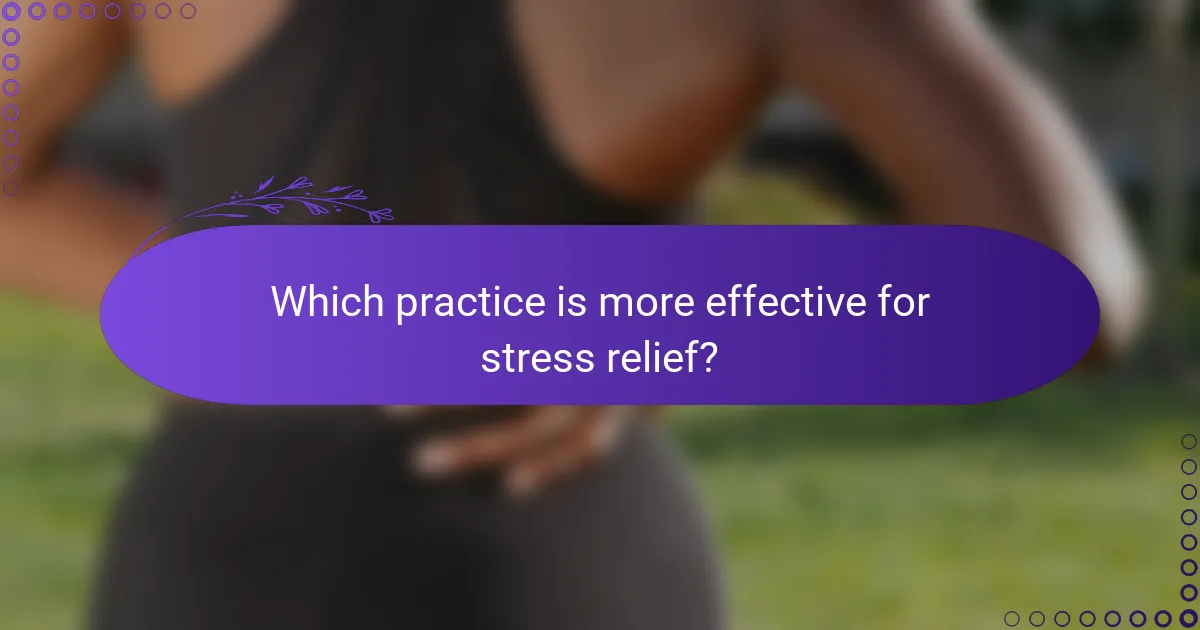
Which practice is more effective for stress relief?
Mindfulness is often more effective for immediate stress relief, while meditation tends to provide long-term benefits. Both practices can enhance overall wellness, but their approaches and outcomes differ significantly.
Mindfulness for immediate stress management
Mindfulness focuses on being present in the moment, which can quickly alleviate stress. Techniques such as deep breathing, body scanning, and mindful observation can be practiced anywhere, making them accessible during stressful situations.
For example, taking a few minutes to concentrate on your breath or observe your surroundings can help ground you and reduce anxiety. Aim for short sessions of 5-10 minutes throughout the day to effectively manage stress as it arises.
Meditation for long-term stress reduction
Meditation involves dedicated time for focused practice, leading to deeper relaxation and resilience against stress over time. Regular meditation can help rewire the brain, enhancing emotional regulation and reducing the overall perception of stress.
Consider setting aside 10-20 minutes daily for meditation. Techniques such as guided imagery, transcendental meditation, or loving-kindness meditation can foster a greater sense of calm and well-being. Consistency is key; aim for several sessions a week to experience substantial benefits.

How to choose between mindfulness and meditation?
Choosing between mindfulness and meditation depends on your personal wellness goals and how you prefer to engage in mental practices. Mindfulness focuses on being present in the moment, while meditation often involves structured techniques to achieve a specific state of mind.
Consider personal goals and preferences
Your personal goals play a crucial role in deciding between mindfulness and meditation. If you aim to reduce stress in daily activities, mindfulness may be more suitable as it can be practiced anywhere, anytime. On the other hand, if you seek deeper relaxation or spiritual growth, meditation techniques could be more effective.
Preferences also matter; some individuals enjoy the structure of guided meditation sessions, while others prefer the flexibility of mindfulness practices. Experimenting with both can help you discover which approach resonates more with you.
